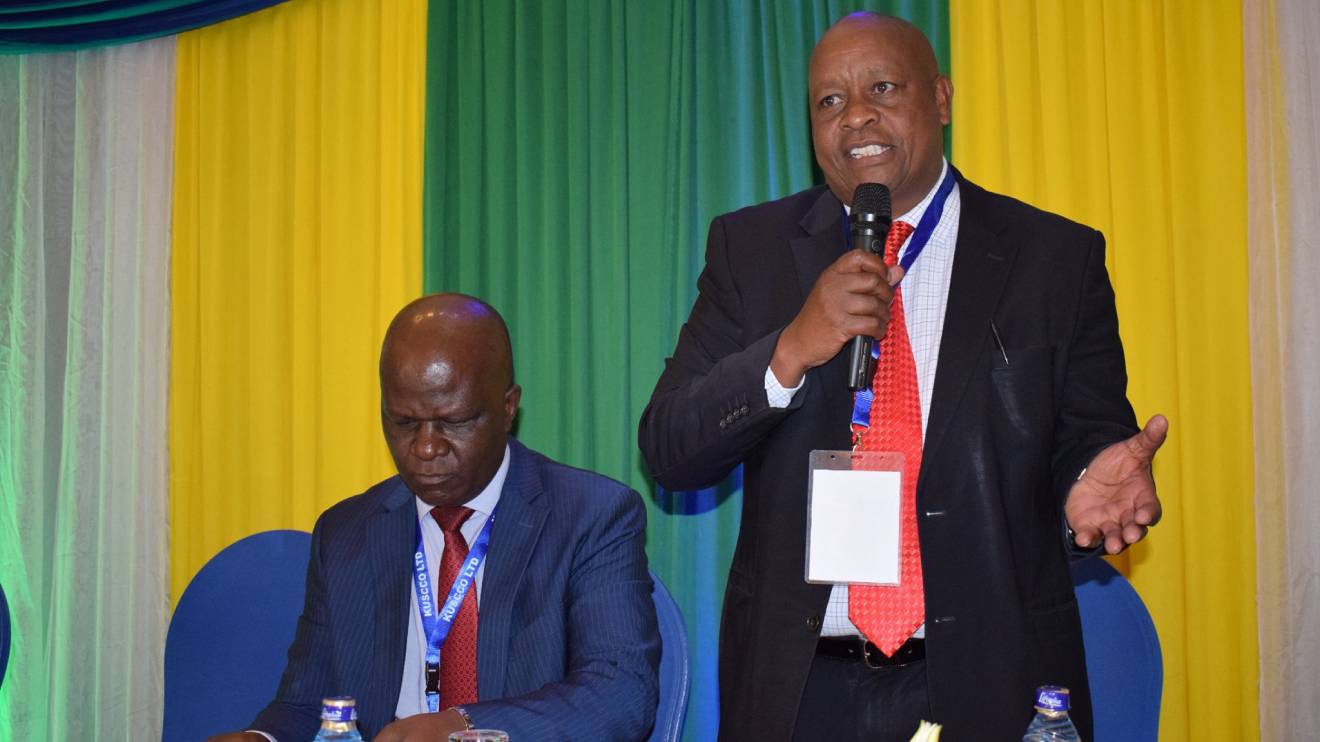A forensic audit has ripped the lid off a financial scandal at the Kenya Union of Savings & Credit Co-operatives Ltd (KUSCCO), revealing a staggering Sh12.5 billion hole in its books.
What started as a routine audit quickly turned into a shocking exposé of forgery, phantom profits, and brazen theft—so audacious that even a dead man was made to sign off on financial statements.
A Ghost in the Accounts
One of the biggest red flags in KUSCCO’s 2022 financial report was the signature of Alfred Basweti, an auditor from Omenye and Associates.
The problem? Basweti was already dead when the documents were signed. A comparison with KUSCCO’s 2021 records showed that the signatures didn’t match, triggering deeper scrutiny.
Read More
Kenneth Kimaiyo, KUSCCO’s former internal auditor, confirmed what the forensic team from PricewaterhouseCoopers (PwC) suspected—Basweti had passed away before the financial statements were finalised.
Yet somehow, his name still appeared, rubber-stamping what was later revealed to be a falsified financial report.
But the dead man’s signature was just one piece of a much bigger puzzle. Behind the doors of KUSCCO’s leadership, a storm had been brewing for years, built on cooked books, hidden debts, and reckless withdrawals that left depositors’ billions in limbo.
A House of Cards Built on Fake Profits
PwC’s forensic audit painted a grim picture: Sh9.3 billion had been deliberately misstated to present KUSCCO as a profitable entity when, in reality, it was drowning in debt.
The institution had systematically slashed reported costs while inflating incomes, creating an illusion of financial stability.
Beneath the surface, however, the rot was spreading. The audit found that KUSCCO had concealed Sh6.5 billion in loans between its own departments.
Of the Sh11.1 billion shuffled around internally, only Sh286 million was ever recovered—leaving a massive gap in its balance sheets.
The Men Behind the Curtain
At the heart of this financial web were top KUSCCO officials: former managing director George Ototo, finance manager George Owino, and chairman George Magutu.
These executives allegedly took control of the financial reporting process, locking out the rest of the finance team.
When PwC sought their input, they opted for silence. Ototo, in particular, threatened legal action against journalists attempting to uncover the truth.
Money That Vanished Without a Trace
Beyond falsified reports, PwC uncovered blatant theft within KUSCCO’s ranks. Executives had withdrawn Sh1.6 billion in commissions, but only Sh1.1 billion was accounted for—leaving Sh0.5 billion completely untraceable.
The audit also flagged suspicious transactions involving Baobab Insurance Agency, which received Sh821 million in unexplained overpayments.
The agency, linked to a former KUSCCO managing director, allegedly inflated invoices based on verbal instructions relayed via phone calls and WhatsApp messages.
Meanwhile, Sh206 million disappeared through a series of unverified cash withdrawals, supposedly to replenish funds at KUSCCO Fosa branches. PwC found no supporting documentation, only a trail of vanished money.
Francis Wande, KUSCCO’s chief cashier, confessed that over a period of seven years, he personally handed Sh135 million in cash to Ototo and Owino. Where that money ended up remains a mystery.
Kickbacks and Dodgy Deals
Procurement irregularities also formed part of KUSCCO’s downfall. PwC discovered that Sh1.2 billion had been paid to contractors under questionable circumstances.
In one instance, 14 out of 16 vendors hired for a housing project in Kitengela had no formal contracts—strongly suggesting that kickbacks were at play.
One official was directly implicated after receiving Sh2.7 million from a contractor, which he claimed was payment for a car. But auditors weren’t buying the explanation.
Regulatory Blind Spot
For years, KUSCCO operated with little regulatory oversight, despite handling billions in SACCO deposits.
The Ministry of Cooperatives has since ordered a full audit, and several top officials have resigned amid growing pressure.
However, the damage is already done. KUSCCO is staring at insolvency, and 247 SACCOs that entrusted the institution with Sh24.8 billion now face an uncertain future.
A Crisis of Trust
For depositors, the KUSCCO scandal is more than just numbers on a ledger—it is a betrayal. The institution, which was supposed to safeguard SACCO members’ savings, instead became a hub for unchecked greed and corruption.
As investigations continue, the key question remains: will those responsible be held to account, or will this scandal go the way of so many before it—swept under the rug while ordinary Kenyans count their losses?









